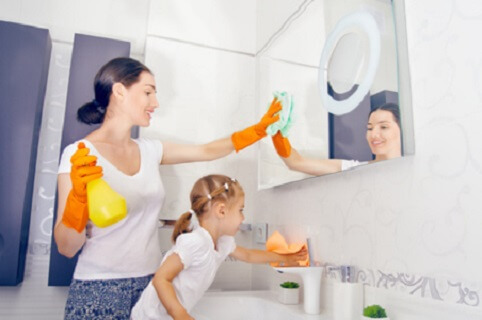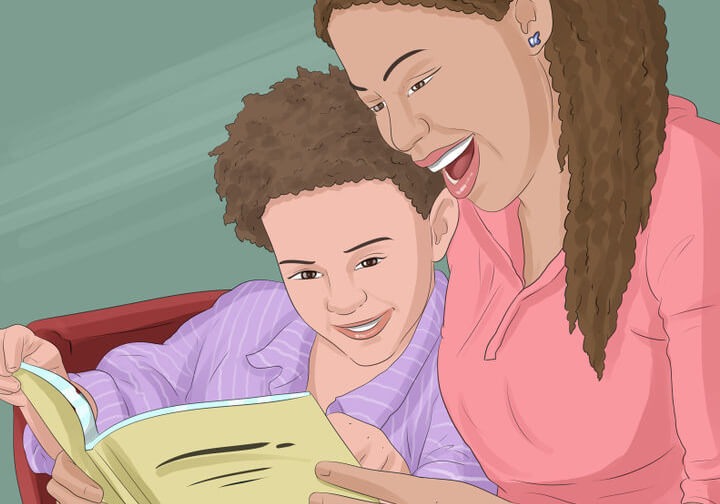Teach Your Child To Be Responsible


Reviewed and approved by the psychologist María Alejandra Castro Arbeláez
Teach your child to be responsible by taking our advice into account. There are 3 recommendations we consider to be essential while raising a child.
Of course, in each home there is a certain style in which parents educate and pass on values to their children. Nevertheless, we believe that our advice can be adapted to any parenting method.
We sincerely hope that this article will help you teach your child to be responsible and in some ways help you continue advancing in the difficult and precious work of educating them.
Give them household chores
Household chores should be shared by all family members, from the youngest to the oldest.
Your child should be responsible for organizing their rooms and putting all their toys away. It isn’t okay for mom and dad to spend the whole day organizing the mess their child makes.

Young children have to learn that their rooms and toys aren’t their only responsibilities. There are also other chores in the house that benefit the whole family.
Therefore, these chores should be everyone’s responsibility. For example: cleaning, cooking, washing dishes, washing clothes, taking out the garbage, recycling, mowing the lawn…
Work makes children noble, and it also teaches them to be responsible. That’s why it’s important to have your child start helping around the house from when they reach the age of one.
Let’s say for example: if your child is a 1-year-old, they can help you pick up the clothes that have been washed. They should move them from the bed to their closet. They can put their dirty clothes into the hamper.
You can also ask them to help you move groceries from the car to the house: tea bags, a small cup of yogurt or ice-cream, bread, etc.
This helps them learn how to handle responsibilities when they grow older. You should teach them how to help you at home as soon as they start walking.
Teach them to care about others
When a child is 2-4 and older, they should learn to care about others. They should be willing to help with whatever others need. This way you’ll teach them to be responsible with their peers.
Their biggest responsibility, however, lies in studying and learning something new every day. They should know that those around them need as much as they do.
If mom’s head hurts and she lies down, he can stay by her side and stroke her forehead in order to make her feel better.
Teaching children to love others is also important for their own emotional and physical well-being.
It’s important for children to know they aren’t always the center of the family’s attention. They have to understand that other members of the family are just as important.
Reward them for their good behavior

Finally, we’d like to talk to you about what a gift should be when raising a child. These gifts will help them be more responsible.
Keep in mind that when we’re talking about gifts we aren’t referring to a bike, tablet, phone, or any other material gifts. We mean rewarding children through praise, expressions of affection and encouraging their self-esteem.
A child that acts responsible towards themselves and others should receive praise from the adults around them. We should highlight their good deeds and behavior.
But of course this should all be done reasonably in order to prevent giving your child certain egomania.
For example, if in addition to your child’s usual responsibilities – like doing homework, taking out the trash, picking up the toys from the floor in their room – they’re also concerned about helping mom serve dinner or helping dad cut herbs from the garden, they deserve a great compliment.
What a responsible child! You’re growing up so fast! Very good, that’s how its done! Thank you…
Because your child, just like everyone else, needs to receive positive feedback that lets them know they’re valued for doing the right thing.
Keep in mind that children love receiving compliments and feeling useful. A kiss, a tap on the shoulder, a hug or an encouraging phrase: what a good child!
Look how much he helps his mom! Why not tell them how you feel? Who better to praise your child than you!
All cited sources were thoroughly reviewed by our team to ensure their quality, reliability, currency, and validity. The bibliography of this article was considered reliable and of academic or scientific accuracy.
- González-Pienda, J. A. (2007). Los retos de la familia hoy ante la educación de sus hijos: a educar también se aprende. https://ruc.udc.es/dspace/bitstream/handle/2183/7080/RGP_15-13_Cong.pdf
- Macías Vélez, L., & Mejía Macías, Y. A. (2008). El niño entre la inocencia y la responsabilidad. Cartilla:¿ Cómo educar niños y niñas responsables? http://200.24.17.68:8080/jspui/handle/123456789/1643
- Seitún, M. (2011). Criar hijos confiados, motivados y seguros: Hacia una paternidad responsable y feliz. GRIJALBO.
This text is provided for informational purposes only and does not replace consultation with a professional. If in doubt, consult your specialist.
